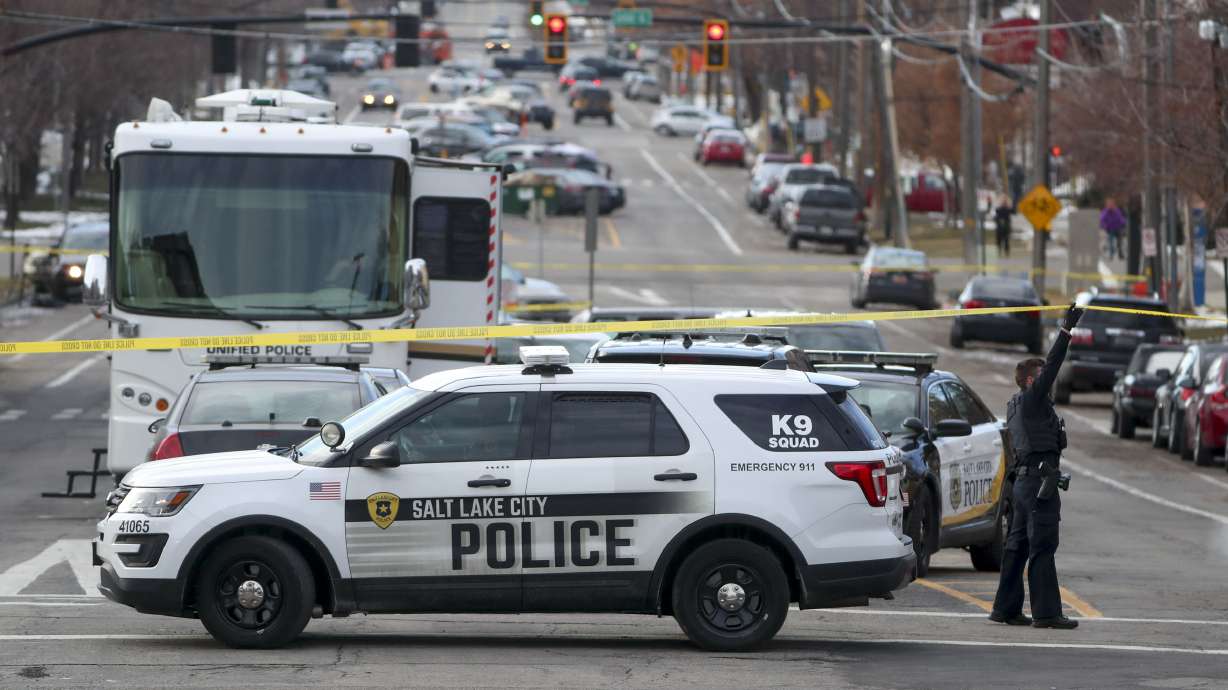Estimated read time: 3-4 minutes
This archived news story is available only for your personal, non-commercial use. Information in the story may be outdated or superseded by additional information. Reading or replaying the story in its archived form does not constitute a republication of the story.
SALT LAKE CITY — The Racial Equity in Policing Commission began wading through 800 pages of Salt Lake City Police Department policy and weighing the value of pairing each commissioner with a police officer.
“It seemed the purpose was to humanize each other,” said commission member and attorney Nicole Salazar-Hall. “So many people see us as polar opposites when I don’t know that we’re that polarized. ... So it’s a chance to humanize each other and create a more open conversation, and I’m completely for it. I’d be happy to get started tomorrow if necessary.”
One commissioner voiced concerns, while several others voiced support with questions or caveats. Commissioner Samantha Eldridge, who represents the Navajo Nation, wondered if police would be, as the commissioners are, all volunteers, as that’s a significant time and personnel commitment.
Commissioner and founder of Sojourner Group Carol Shifflett asked if the participating officers would receive implicit bias training before being paired with community leaders, as she felt they needed an understanding of the community’s concerns if they were going to work together.
Dr. Moises Prospero, commissioner and researcher in the area of criminal, juvenile and social justice, suggested they refine the idea and include the concerns and questions raised by members.
“Maybe we could put some more thought into this,” Prospero said. “I want to build relationships, I think that’s the best way you move forward. By building relationships, you start trusting each other, even if it’s (a) little. So I would be a part of it, but I do want to make sure that we look into people’s feeling of safety, as well as have some kind of structure for this.”
Steve Anjeweirden, a commissioner and retired police officer, said he thought it would be valuable to hear from officers of various rank who’d participated in implicit bias training and see what they “were able to internalize.”
When it came to specific issues or questions about policy, most hadn’t had time to digest the 800 pages of policies, although several had questions.
Salazar-Hall asked a question raised by a journalist about whether or not an officer can exclude information “that may be critical for the public to know about or critical for the city, for everyone to know what happened during the officer-involved critical incident.”
I want to build relationships, I think that’s the best way you move forward.
–Dr. Moises Prospero, commissioner and researcher
“I think it is something that we should take a look at to see if there’s crucial language missing or language that needs to be changed,” she said.
Attorney Mark Kittrell said he could have insight on that issue by next week’s meeting. He also said he and other staff members could research any specific issues raised by committee members.
The Rev. France Davis, commissioner and meeting chairman, said he was interested in “at least two areas.”
“One I’m interested in is whether there’s policy related to dogs and the use of those, and are they considered as a weapon and so forth?” Davis said. “And then secondly, I’m also interested in what is not stated in policy regarding the knee, the use of the knee; I know that the policies says that there’s another way to control a person, but is there something that is not in the policy regarding the use of knee on the neck kind of thing?”
Eldridge asked for information on “policies around de-escalation.” Prospero asked attorneys to make them aware of issues that might be national issues that they may not be aware of.
“I don’t want to be too presumptive in what I think the commission may want to hear,” Kittrell said, “but I’ll certainly try and identify those things that are hot button issues and try to identify those policies that surround those issues.”
Davis suggested they look just as closely at those systems or policies that are working well.









